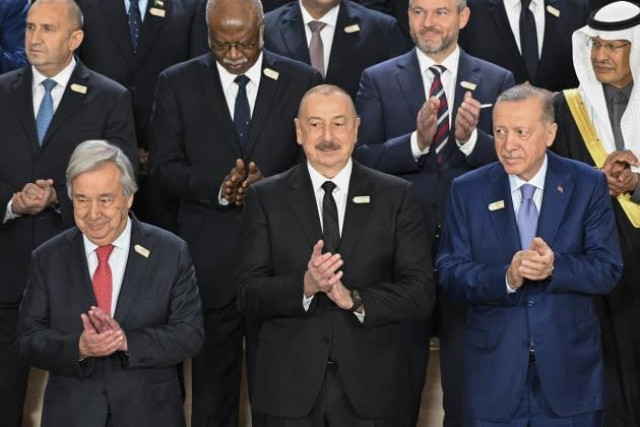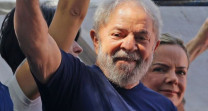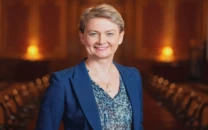WB, IMF climate snub 'worrying': COP29 presidency
.

The hosts of the most recent UN climate talks are worried international lenders are retreating from their commitments to help boost funding for developing countries' response to global warming.
This anxiety has grown as the Trump administration has slashed foreign aid and discouraged US-based development lenders like the World Bank and the International Monetary Fund from focussing on climate finance.
Developing nations, excluding China, will need an estimated $1.3 trillion a year by 2035 in financial assistance to transition to renewable energy and climate-proof their economies from increasing weather extremes.
But nowhere near this amount has been committed.
At last year's UN COP29 summit in Azerbaijan, rich nations agreed to increase climate finance to $300 billion a year by 2035, an amount decried as woefully inadequate.
Azerbaijan and Brazil, which is hosting this year's COP30 conference, have launched an initiative to plug the shortfall that includes expectations of "significant" contributions from international lenders.
But so far only two — the African Development Bank and the Inter-American Development Bank — have responded to a call to engage the initiative with ideas, said COP29 president Mukhtar Babayev.
"We call on their shareholders to urgently help us to address these concerns," he told climate negotiators at a high-level summit in the German city of Bonn this week.
"We fear that a complex and volatile global environment is distracting" many of those expected to play a big role in bridging the climate finance gap, he added.
His team travelled to Washington in April for the IMF and World Bank's spring meetings hoping to find the same enthusiasm for climate lending they had encountered a year earlier.
But instead they found institutions "very much reluctant now to talk about climate at all", said Azerbaijan's top climate negotiator Yalchin Rafiyev.
This was a "worrisome trend", he said, given expectations these lenders would extend the finance needed in the absence of other sources.
"They're very much needed," he said.
The United States, the World Bank's biggest shareholder, has sent a different message.
On the sidelines of the April spring meetings, US Treasury Secretary Scott Bessent urged the bank to focus on "dependable technologies" rather than "distortionary climate finance targets."
This could mean investing in gas and other fossil fuel-based energy production, he said. Under the Paris Agreement, wealthy developed countries — those most responsible for global warming to date — are obligated to pay climate finance to poorer nations. AFP



















COMMENTS
Comments are moderated and generally will be posted if they are on-topic and not abusive.
For more information, please see our Comments FAQ